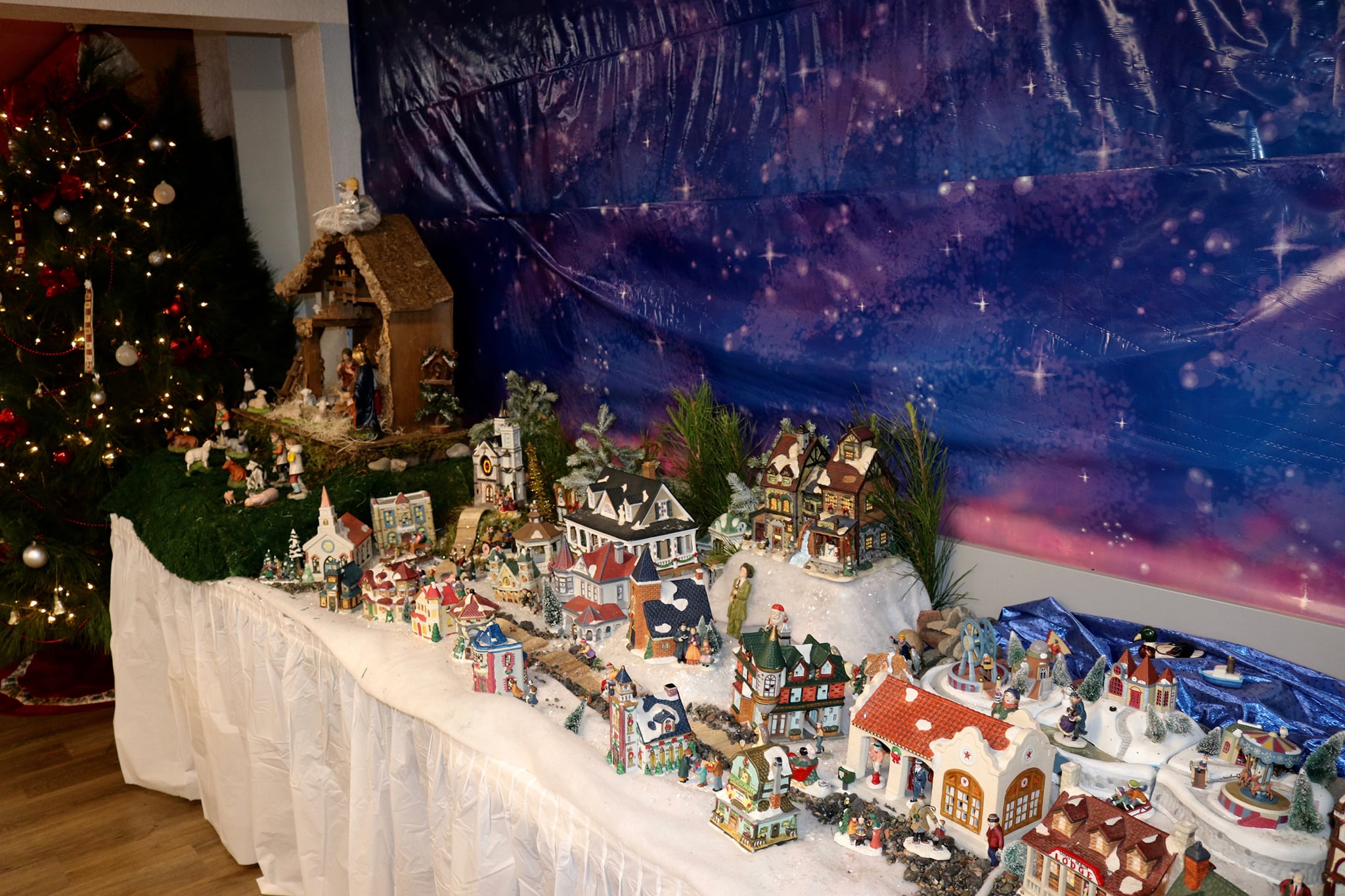This Saturday, Dec. 10, from 1 p.m. to 5 p.m., the Portuguese Organization for Social Services and Opportunities (POSSO) of San José is throwing open the doors for its annual free Christmas open house. This is the first year that the holiday open house has been held since the onset of the COVID pandemic.
The event will feature a bilingual nativity pageant presented by students from a local Portuguese language school, as well as traditional carols and Portuguese sweets.
In Portugal, Christmas celebrations begin in early December with baking traditional fruitcake, bolo de frutas.
“After the cake is baked it is sprinkled every day with homemade moonshine — often a fig liquor — and molasses,” explained Bella Ferreira, POSSO Executive Director. “By Christmas, this becomes a pudding-like treat, more like British plum pudding than an American fruitcake.”
The Christmas presépio — nativity scene — is another important part of Christmas in Portugal and every family has one. Presépios can be simple or extravagant works of art.
“Some families go all out,” said Ferreira, “and incorporate their villages in the nativity.”
The traditional Christmas Eve dinner in mainland Portugal includes salted codfish — bacalhau. However, in the Azores, where many of the Bay Area’s Portuguese community hails from, the traditional Christmas Eve meal is molha, a pork and beef stew that can include several kinds of sausages, taro root and sweet potatoes.
After dinner, people go to Midnight Mass — Missa do Gallo, (literally, the mass of the rooster). Before they leave for church, children leave their shoes near the presépio, so that Pai Natal — Father Christmas — will leave them plenty of presents.
Another important part of Portuguese Christmas celebrations is caroling from house to house — O Menino Mija — that continues from Christmas to Epiphany — Dia dos Reis, Day of the Kings — on Jan. 6.
This visit is marked by sharing sweets and homemade liqueurs with carolers, and people take pride in showing the best their homes have to offer. These liqueurs can include honey, fig, tangerine, blackberry, Angelica and even milk.
Another unique Portuguese tradition is Christmas Wheat. The same day the bolo de fruta is baked, Portuguese will also plant some wheat seed in a pot to germinate. The wheat is placed next to the Christmas creche, and this is considered an omen for the next year’s harvest.
“If it sprouts and thrives, the next year’s harvest will be successful,” said Ferreira. “It’s a good omen for the coming year.”
About POSSO
POSSO is a nonprofit that serves the Portuguese-speaking community in Santa Clara County. The organization acts as a bridge between the Portuguese-speaking community and larger community, as well as providing social events, services such as rides and meal delivery, and advocacy with social services agencies.
“We would like to do more but we don’t have the bandwidth,” said Ferreira.
“We help them navigate County social services system,” explained Ferreira. “For example, I was just working with a lady whose rent was suddenly increased $560. That’s illegal.”
POSSO is at 1115 E. Santa Clara St., San José. For more information, visit the Portuguese Center website, or call (408) 293-0877.












I enjoyed reading the blurb on San Jose’s Portuguese Christmas tradition. However one of the the roots eaten with the Azorean stew during Christmas Eve is actually Yams. Yams look like Taro Root. Also, many Americans think yams are the orange sweet potatoes but they are not. Yams are not sweet just like Taro is not sweet.